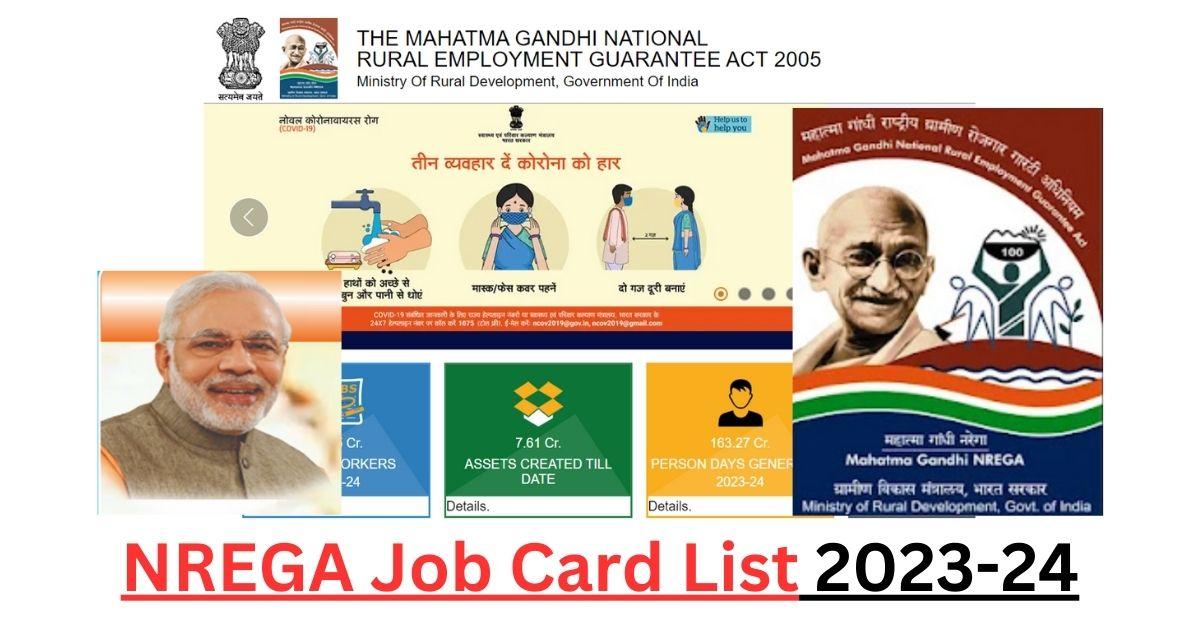Introduction:
The National Rural Employment Guarantee Act (NREGA), known as Mahatma Gandhi National Rural Employment Guarantee Act (MGNREGA), is a revolutionary step in India's efforts towards rural development. Enacted in 2005, the primary objective of NREGA is to enhance the livelihood security of people in rural areas by providing at least 100 days of guaranteed wage employment in a financial year to every household whose adult members volunteer to do unskilled manual work. This ambitious program is closely tied to the functioning of Gram Panchayats, the local self-government institutions at the village level.
NREGA's Impact on Rural India:
Over the years, NREGA has made significant contributions to rural development by addressing issues of poverty, unemployment, and infrastructure development. The program not only guarantees employment but also focuses on creating productive and sustainable assets in rural areas. This includes projects related to water conservation, agriculture, rural connectivity, and other community-centric initiatives. However, the effective implementation of NREGA relies heavily on the active involvement of Gram Panchayats.
Role of Gram Panchayats in NREGA Implementation:
Gram Panchayats play a vital role in the successful execution of NREGA, acting as the bridge between the government and the local community. Their involvement can be broadly categorized into planning, execution, and monitoring.
- Planning:
Gram Panchayats are responsible for identifying and prioritizing projects that align with the needs and aspirations of the local community. This involves conducting regular meetings, known as Gram Sabhas, where villagers actively participate in the decision-making process. By engaging the community, Gram Panchayats ensure that NREGA projects are not only aligned with the actual requirements of the people but also foster a sense of ownership among the villagers.
- Execution:
Once the projects are identified and sanctioned, Gram Panchayats oversee the implementation of NREGA works. This includes the recruitment of workers, ensuring timely payment of wages, and monitoring the progress of the projects. Gram Panchayats act as intermediaries, streamlining communication between the government authorities and the villagers. Their proactive involvement is crucial in addressing any challenges that may arise during the implementation process.
- Monitoring and Transparency:
Gram Panchayats are entrusted with the task of maintaining transparency in the NREGA process. They manage the job card register, which contains details of every worker employed under NREGA. This register serves as a tool for transparency and accountability, allowing both the workers and the government to track the flow of funds and the progress of the projects. Gram Panchayats also display relevant information, such as muster rolls, in prominent public places to keep the community well-informed.
Challenges and Solutions:
While the partnership between NREGA and Gram Panchayats has yielded positive outcomes, challenges persist. In some regions, there is a lack of awareness among villagers about their rights and entitlements under NREGA. Gram Panchayats need to take proactive measures to educate the community and ensure that every eligible household avails the benefits of the scheme.
Timely release of funds and bureaucratic hurdles are also challenges faced by Gram Panchayats. Streamlined communication channels, simplified administrative processes, and capacity-building programs for Gram Panchayat members can help address these issues. nrega gram panchayat
Conclusion:
The synergy between NREGA and Gram Panchayats holds the key to rural transformation in India. By addressing poverty, unemployment, and infrastructure development, this partnership has the potential to create sustainable and inclusive growth. However, it is essential to recognize the challenges faced by Gram Panchayats and work towards empowering them with the necessary resources and support. As India progresses towards a brighter future, the collaboration between NREGA and Gram Panchayats remains integral to building resilient and prosperous rural communities.

